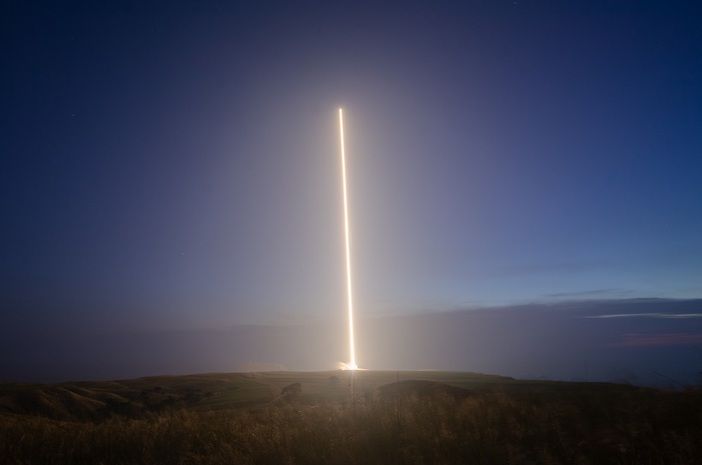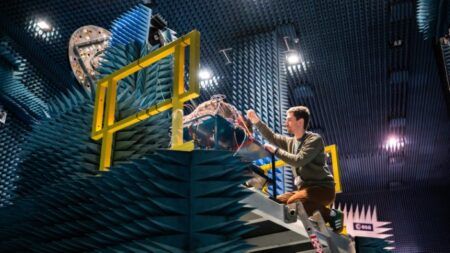USA-company Rocket Lab has successfully flight tested a guided re-entry of its Electron launch vehicle first stage all the way to splashdown.
The launch last week was the tenth Electron mission and deployed seven spacecraft to orbit for commercial customers. The small-satellite focused launch company has so far delivered 47 satellites to orbit from its facility in New Zealand during the last two years.
Last week’s flight also tested a number of key parts of its Electron rocket that will make it reusable, with the first stage of the rocket returned to sea-level intact following a guided descent.
The first stage included guidance and navigation hardware, including S-band telemetry and onboard flight computer systems, to gather data during the first stage’s atmospheric re-entry. The stage was also equipped with a reaction control system (RCS) to orient the booster during its re-entry descent.
The RCS system successfully oriented the first stage 180-degrees for its descent, and it remained dynamically stable for the re-entry, keeping the correct angle of attack. The stage was slowed to less than 900km/h by the time it reached sea-level and disintegrated as planned on impact.
Rocket Lab said its engineers are now analyzing the recovery data ahead of a full recovery attempt next year that will see parachutes deployed from Electron’s first stage to enable a soft water landing.
Rocket Lab CEO and founder, Peter Beck said, “Not only is this tenth mission a significant milestone launch for us, but our first guided stage re-entry was a complete success. The stage made it through the harsh re-entry environment intact, which is an outstanding result for a first test of our recovery systems.”
“As we close out another year of launches, we set our sights on a busy 2020 that will see us launch Electron from US soil out of Launch Complex 2 for the first time, while continuing to grow the launch cadence out of Launch Complex 1”
Rocket Lab’s next mission will take place within the first weeks of 2020 from Launch Complex 1 in New Zealand





